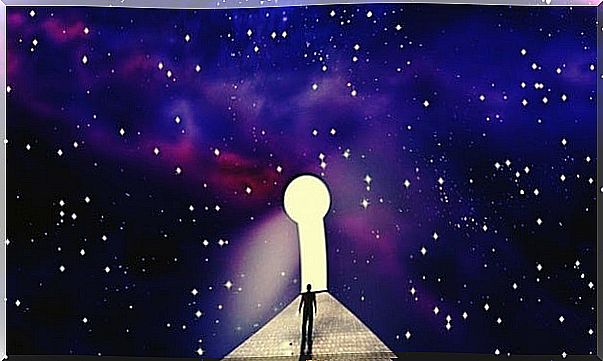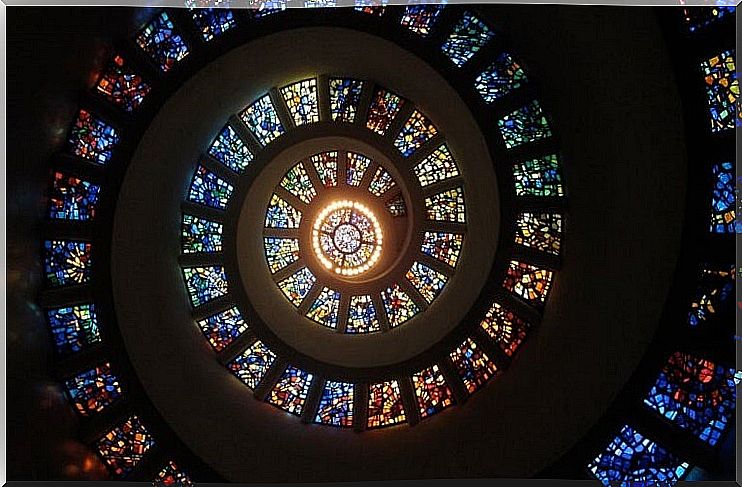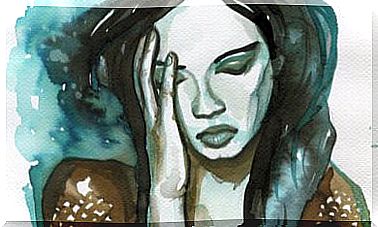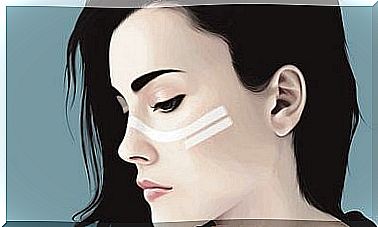The Mystical Delusion, What It Is And How It Manifests Itself

Mystical delusion is an interpretation of reality that has three characteristics. The first is that this interpretation has the religious theme as its central content. The second, that it is based on a judgment that is not shared by the society or culture in which it occurs. The third is that this situation causes great discomfort to the person and affects their relationship with others and their performance in social life.
The mystical delusion has also been called messianic delusion because it is usual for those who suffer from it to feel chosen to fulfill a certain mission, entrusted by the divinity. Given the difficulty of setting precise limits on a religious belief, mystical delusion is sometimes not easy to detect.
The determining factor in mystical delusion is the negative effect it has on the person. Someone can have beliefs that are absurd to others and, even so, they could not be classified as delusions, as long as they do not lead to anguish and maladjustment. More than truth or falsehood, what makes a mental content delusional is the intensity, persistence and damage that said mental content causes to the person.

From religion to mystical delusion
Religion is the belief that there is a divine or supernatural power, which must be worshiped and obeyed. This belief is generally accompanied by an ethical code that must be followed and a set of rituals that must be practiced. The boundary between the religious and the delusional is not easy to define. What in one human group is part of the belief, in another group could be seen as completely irrational.
Religious people often adopt mysticism as a way of life. This can be defined as a maximum exaltation of religious sentiment. In that case, they assume a model of behavior that brings them closer to perfection from the point of view of their belief. They also seek a spiritual union with God. They usually achieve it through intuition and ecstasy, mainly through rituals.
Now, sometimes it happens that the religious person builds a judgment on reality that is not shared by the other members of his belief. This judgment becomes unchangeable and increasingly intense. When there is mystical delusion, the person is obstinate in such judgment and this leads to states of high concern and anxiety.
Who suffers from a mystical delusion begins to orient his whole life towards his belief, which is anomalous or far from the typical. Stop studying, working and leading a life that could be considered “normal.” Their reasoning is often based on hallucinations or pseudo-hallucinations, that is, on altered perceptions of reality.

Contents and effects of mystical delusion
Although it sounds somewhat paradoxical, the mystical delusion represents an attempt to regain contact with reality. Prior to this, there is a strong fracture in the psychic life of the person. In general terms, it is frequently found that the person has suffered an accumulation of pain that overwhelms him. He is unable to process such suffering and is internally bankrupt. Delirium, then, is a way to mend that internal damage.
It has been established that Catholic and Christian people who suffer from mystical delirium, in general, elaborate content related to guilt and atonement. Meanwhile, Jews are more likely to suffer from delusions related to the presence of night demons.
Beyond the delusional content, the fundamental thing is that it notably affects the life of those who suffer from it. It causes great suffering and leads him to make false judgments about reality. It also isolates you and prevents you from leading a functional life.

Treatment of delirium
The intervention on the mystical delusion, as on other forms of delusion, is not easy. In general, those affected are reluctant to be treated because they see external interventions as an intrusion into divine plans. For this reason, a long treatment is often required and, almost always, slow results.
Psychiatry and medications can help moderate some of the effects of delirium, such as excessive anxiety or the production of hallucinations, when they exist. Beyond that, its field of action is limited. Psychotherapy, on the other hand, is a way to promote an introspection that improves the adaptation of the person and a more reasonable organization of their beliefs.
The environment of the affected person is also essential. It is advisable that the family and those who are part of the environment receive psychoeducation so that they can handle the situation. Understanding, affection and encouragement are also decisive. Beyond the person abandoning their beliefs, the point is that they can lead a less distressing and more balanced life. It is always possible to achieve it.









